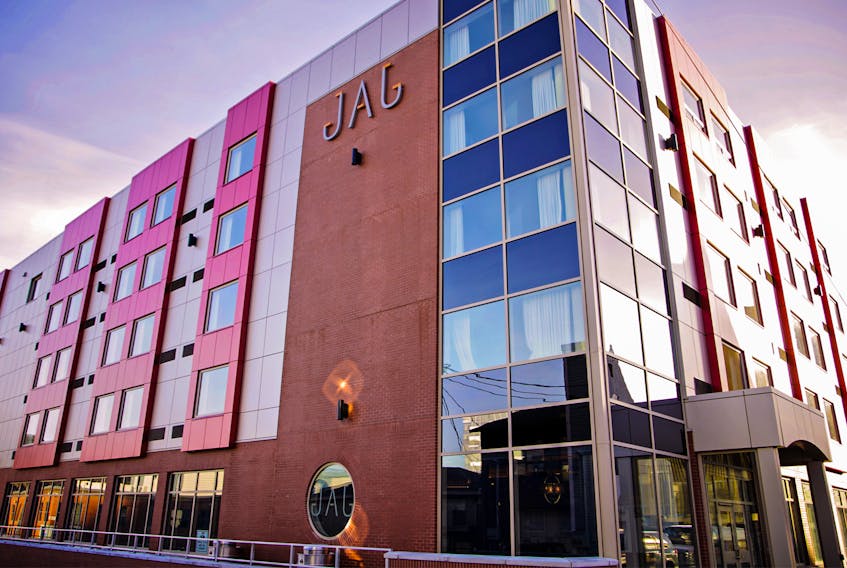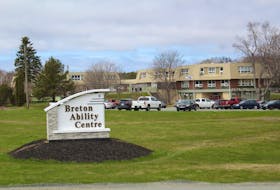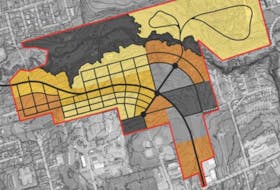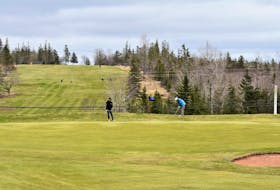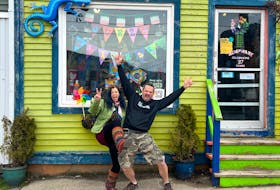Hotels across Canada are largely empty these days, with the COVID-19 pandemic putting on hold just about every sort of activity imaginable that would require guests to book a room.
Steele Hotels has closed and reopened a number of its properties over the last two months. Five of its six hotels currently remain open, with Sinbad's Hotel & Suites in Gander closed since March 22. Also closed since that date is Quality Hotel & Suites in Gander, a property affiliated with Steele Hotels.

According to John Steele, president of Steele Hotels, the company typically employs between 300 and 350 workers. As of mid-May, staffing at the hotels was reduced by at least 85 per cent. Steele said bringing staff back to work is dependent on increased business activity.
"Business has come to a grinding halt," he told The Telegram earlier this month. "We've never experienced a pandemic before and everything that entails, so we're just trying to adjust."
The layoffs have been substantial across the country. According to Susie Grynol, president and CEO of the Hotel Association of Canada, over 250,000 workers in the industry were laid off due to the pandemic, representing approximately 80 per cent of the workforce. She said hotels in the country have operated at an average occupancy level of less than 10 per cent.
"We were the first impacted, statistically speaking, and the hardest impacted, statistically speaking, and we will be the last to recover," she told The Telegram. "Most hotels in Canada closed. The ones that remained open were open for humanitarian purposes — hospital overflow, frontline workers, shelters, people needing to self-isolate, travellers coming back that had to quarantine."
Numbers crawl upward
Only now has the average occupancy started to crawl above 10 per cent, Grynol said, adding that would suggest the industry has already hit rock bottom, though it's far from reaching a point of sustainable business activity.
Steele himself expects over the next couple of months hotel occupancy levels will move very slowly, as people will still feel somewhat nervous about venturing far from home, noting too many in the province face financial challenges.
"This has been very, very brutal on a lot of people, especially people that have been employed in the private sector," he said. "I think people that will be travelling in the beginning will be people that have to travel, essentially. I don't think you're going to see things really get moving again until people feel comfortable and safe. Ultimately, that's going to come down to whether there's a vaccine."
Grynol expects there will be some traditional hotel guests from the business world who may come out of the pandemic realizing they do not need to travel for face-to-face meetings in order to get work done.
"I think we are still months away from mass gatherings and conventions and weddings," she said. "There's no horizon on when those types of group gatherings will come back, and that is a significant source of business for the hotel sector. We're also not sure whether the business travel will come back in the way it has historically. We know historically people cut business travel when times are tough. We know times are going to be tough when the economy gets back up and running. And we also now have all been a couple of months online, out of our offices on Zoom, and I think people are realizing that it is possible to do business without being face-to-face. It doesn't replace face-to-face, but we are concerned that there may be an erosion of business travel.
"Then that leaves us with leisure travel, and of course, leisure travel is very much a question mark for this summer, because provinces are all opening up at different levels and different times. There's no predictability on whether people can actually book their summer plans. Then they have to stay in their province. Can they travel inter-provincially? Can they travel in more than groups of five people? This is going to become more clear in the next couple of weeks, but there's no clear line of sight whether leisure comes back and we can actually salvage the summer either."
Newfoundland and Labrador could move up to Alert Level 3 as early as June 8. The province recently went almost three weeks without a new case of COVID-19, though that streak came to an end Thursday, May 28, as government announced a new confirmed case of the virus in the Eastern Health region.
Clean spaces
A big adjustment for all hotels still open has been the need to ensure they can provide a clean and safe environment for guests. Steele expects a lot of hotel room amenities, such as coffee makers or mini bars, will be a thing of the past. Remote check-ins and plexiglass barriers will also become more commonplace.
"There's a lot of changes that will be coming," he said. "Cleanliness has always been a big thing in the hospitality industry, but it's going to be even more so going forward."
Implementing these safety improvement requires training and capital purchases in some cases, Grynol added.
“Public health and the safety of guests and their families is our top priority," she said. "Hotels will not reopen until they are confident they can do so safely. But, we believe there should be some consideration on the part of government to support industries that have put costly systems in place to keep people safe."

While the federal government is offering specialized programs to help a variety of businesses — programs the Hotel Association of Canada highlights on its website for the benefit of members — Grynol would like to see more done to address how the pandemic is effecting businesses.
"Given we're going to be the last industry to recover, we're going to need some of these programs pulled and extended for a longer period of time, like the wage subsidy program. For us, it can't end in August. We're not even sure if we're going to have a summer ... we're certainly at risk as an industry."
Grynol would also like more forgivable loan options. She said the loan programs currently offered through the government are expensive, adding the repayment terms do not make sense for an industry that is going to have cashflow issues for an extended period of time. The association is also looking for stimulus measures with incentives to encourage travel domestically and, when conditions allow for it, internationally.
Steele said hotels are working to come up with different operational frameworks that can allow them to pivot and remain flexible to work with whatever regulations or economic realities come into play.
"The situation is so fluid," he added.
As a best-case-scenario, Steele could see hotels reaching occupancy levels of 30 per cent by the fall. That still would not represent a good situation for his industry.
"Those types of levels are very, very devastating on the financial bottom line," Steele said, later adding he's grateful the company is equipped to weather this storm and that staff still working have continued to do a great job under stressful circumstances.
"We look forward to getting back and welcoming people into our properties and making sure they're looked after in a comfortable and safe manner."
@CBNAndrew

